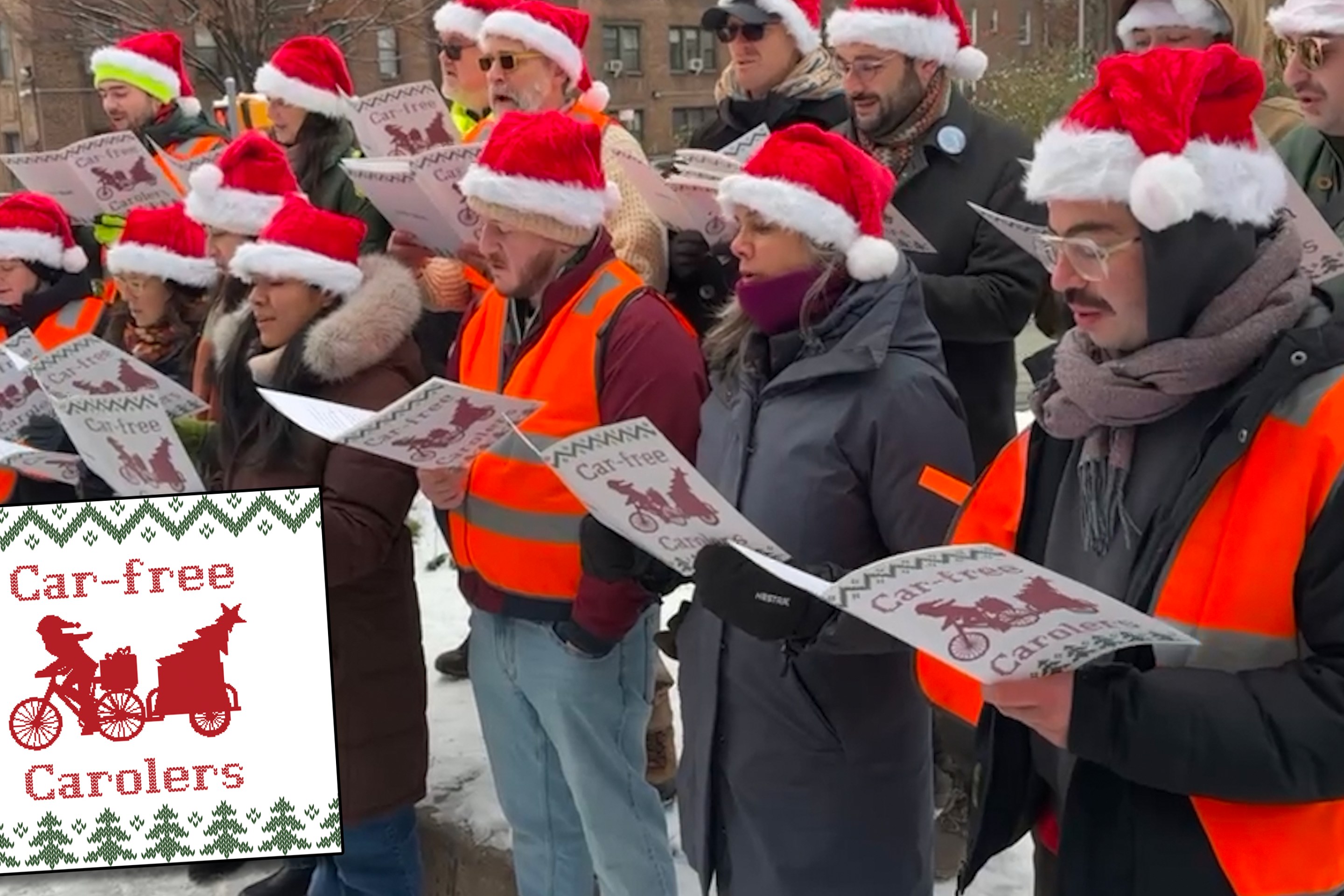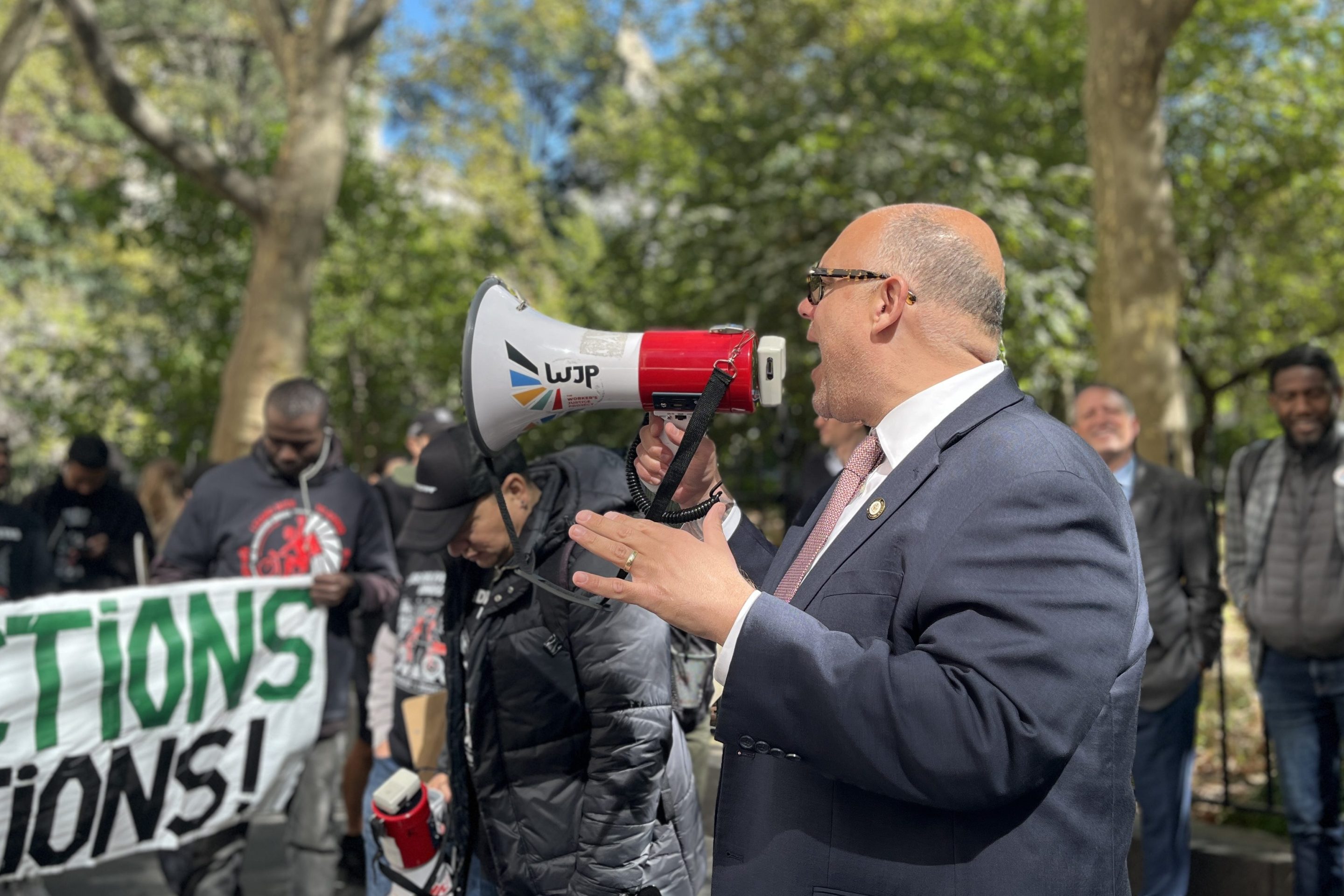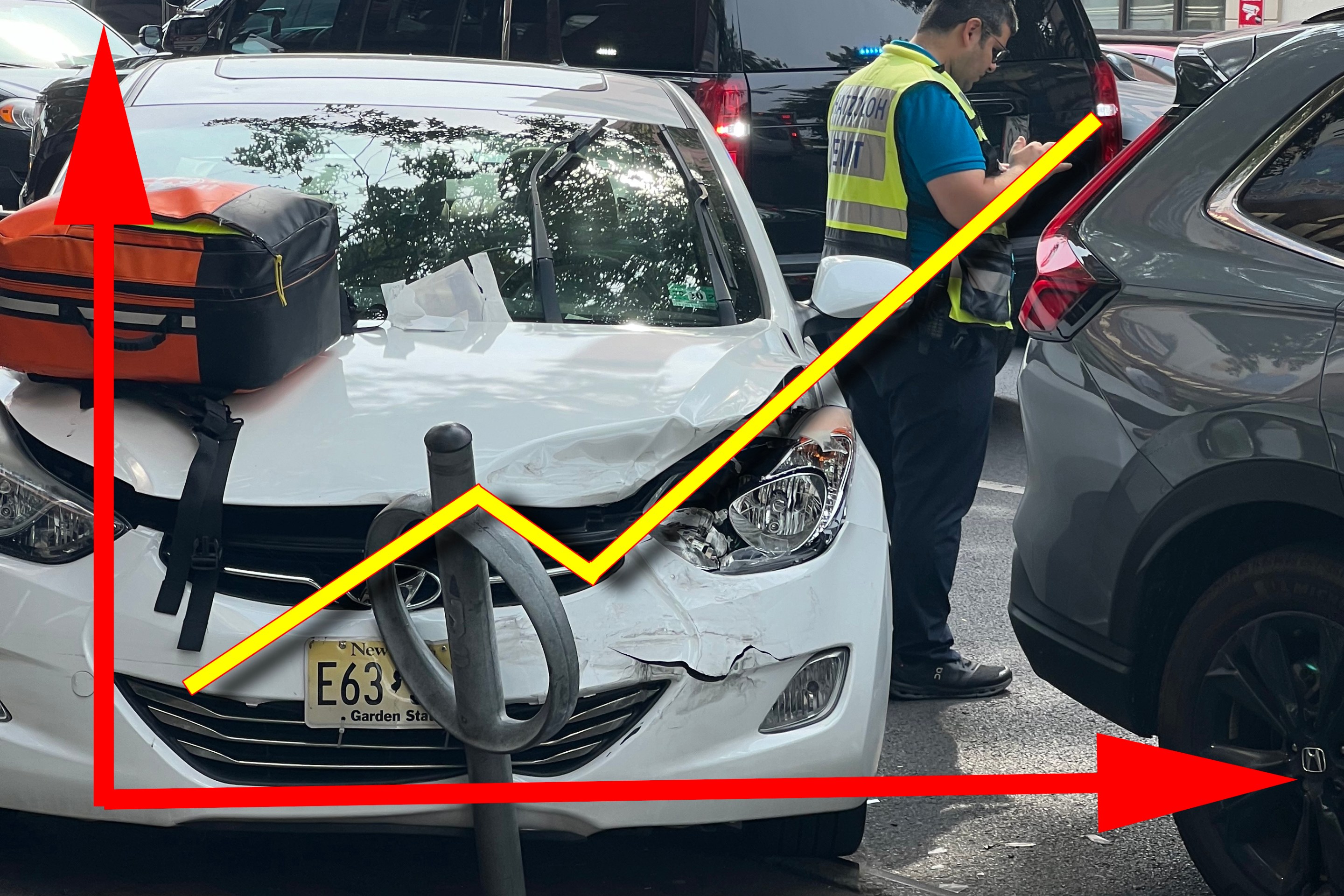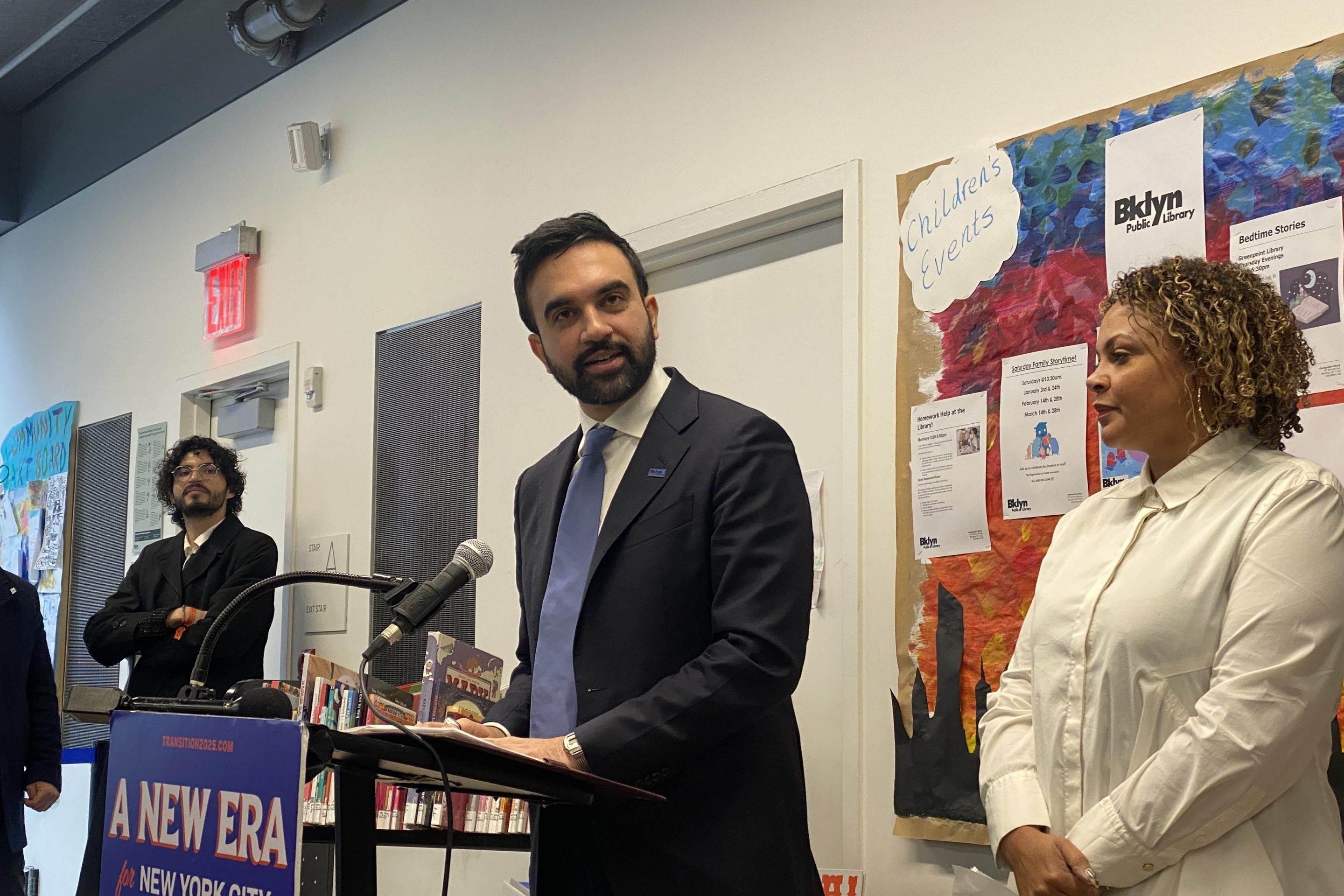Mayor de Blasio and Transportation Commissioner Polly Trottenberg today officially announced the expansion of the city's speed camera program, which will eventually bring automated enforcement to 140 school zones across the boroughs. Today's event also underscored the fact that streets around schools won't be as safe as they could be, thanks to restrictions imposed by Albany.
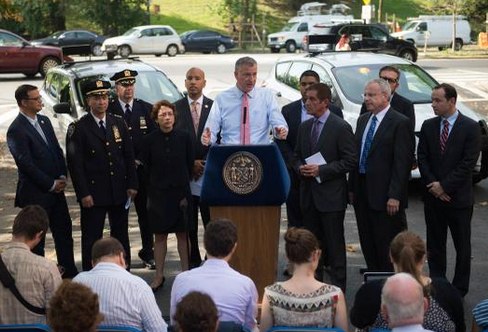
At a press conference this morning at PS 95, on Hillman Avenue in the Bronx, de Blasio and Trottenberg were joined by NYPD Chief of Transportation Thomas Chan and State Senate Co-Leader Jeff Klein, a key supporter of legislation that brought the first 20 speed cams to NYC streets last year.
“Our kids are going to be safer walking to school and coming home because of this new enforcement," said de Blasio via a press release. "We are sending a powerful message that we take safety near our schools seriously, and we will enforce the law to keep children safe."
With the new school year set to start Thursday, DOT is on its way to deploying the 120 additional cameras authorized by state lawmakers earlier this year. Twenty-three cameras will be up and running this week, according to a de Blasio spokesperson, with 40 to 50 cameras operational by the end of 2014. All 140 cameras are expected to be online by the end of 2015.
Speeding was the leading cause of traffic deaths in NYC in 2012, contributing to 81 fatal crashes. Automated enforcement is vital to reducing traffic casualties, but NYC's cameras come with a bevy of conditions that limit their effectiveness. Per today's press release:
DOT is permitted to place cameras within a quarter mile of a corridor passing a school building, entrance or exit of a school on the corridor. The cameras are only active on school days during school hours, one hour before and one hour after the school day, as well as during student activities at the school, and 30 minutes before and 30 minutes after school activities.
In addition, cameras can only ticket drivers who speed by 11 or more miles per hour, and the penalty for speed cam tickets is a nominal $50 fine, with no license points. According to a Transportation Alternatives analysis of DMV data, the majority of fatal speeding-related crashes statewide occur on weekends or between 6 p.m. and 6 a.m. on weeknights -- hours when speed cameras aren't normally allowed to operate. To prevent as many injuries and deaths as possible, state lawmakers should remove these restrictions.
Still, cameras are ticketing drivers for reckless behavior that would otherwise go unpenalized, and the work they're doing points to how rampant speeding is on city streets. The Post reported in July that the city's first 20 speed cameras issued 48,517 tickets in June, the first month when 20 cameras were operational. In one month that handful of cameras nearly outdid six months' worth of speed enforcement by NYPD, which through June issued a total of 54,854 speeding tickets. Speed cameras have issued almost 183,000 tickets so far this year, according to the mayor's office.
There are about 1,700 public schools in NYC, and hundreds more private schools. To make the most of what is still a very small number of cameras, DOT has kept quiet about sitings and other details. (Photos from today's event show a camera mounted behind the windshield of a Ford compact.)
"DOT deployed cameras during the summer months near schools with summer activities, but with the school year about to begin, any school meeting the requirements of the law could potentially receive fixed or mobile speed camera enforcement," the press release said.
